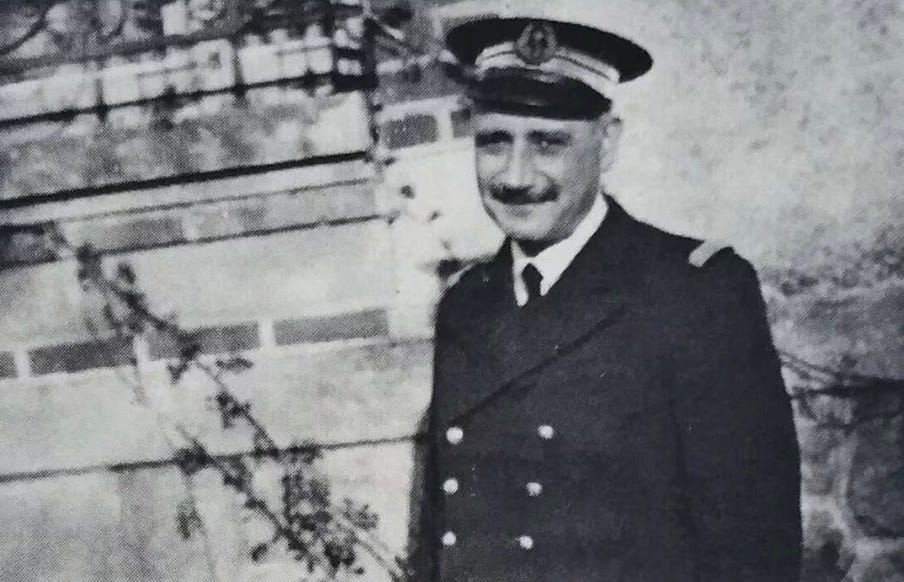How One Man's Superstrength Helped Change the Course of WWII
The Subversive Genius of Jacques Stosskopf
Jacques Stosskopf, a decorated French soldier and skilled engineer, played a pivotal but complex role during the German occupation of France in World War II. Appointed by the Nazis to lead the construction of the U-Boat base at Lorient, Stosskopf appeared to be a staunch collaborator, gaining the trust of the German navy by displaying ruthless efficiency and unwavering commitment to the war effort. His reputation as a traitor among his fellow Frenchmen seemed sealed—he took immense pride in his work, constructing seemingly impregnable submarine pens that resisted even the heaviest Allied bombing.
However, Stosskopf's apparent allegiance to the Third Reich was a carefully crafted facade. In truth, he was a master of subversion, covertly providing critical intelligence to the French Resistance, which was then passed on to the Allies.
His ability to deceive the Germans relied on embodying qualities they put a strong premium on: professionalism, emotional detachment, and relentless dedication to his task. This alignment with the Nazis’ values was no accident; it was a strategic use of what he deemed to be his own personality traits.
In the realm of performance, using an individual's unique talents or skills that, when leveraged effectively, can provide a significant advantage. Just as athletes may hone a particular skill to perfection—becoming the best free-kick taker in soccer or the fastest sprinter—Stosskopf utilized his engineering prowess and natural dourness to deceive his occupiers. These traits were not just personal characteristics; they were weapons which he wielded to achieve his covert objectives.
Stosskopf's deception was possible because he strategically aligned his strengths—his engineering skills and his serious, seemingly unemotional demeanor—with the requirements and expectations of his German overseers. This alignment allowed him to fly under the radar, maintaining the appearance of a dedicated collaborator while actively undermining the Nazi war effort from within. His conscientiousness in constructing the U-Boat base, combined with his ability to project a persona of loyalty to the German cause, created the perfect cover for his espionage activities.
He did not attempt to become something he was not; instead, he doubled down on his natural strengths. His engineering expertise and his ability to embody the German ideals of efficiency and detachment were exactly what made him an effective spy.
By cultivating these superstrengths, he created a unique niche for himself within the German military infrastructure, one that allowed him to subvert their plans from within while remaining above suspicion for years.
In a world where standing out is increasingly difficult, finding and nurturing one's unique talents is more important than ever. For Stosskopf, these were the key to his extraordinary wartime deception. In a modern context, understanding and harnessing our own superstrengths can help us navigate the complexities of today’s competitive landscape, whether we are aiming to advance our careers, build effective teams, or simply achieve personal mastery.
Stosskopf’s tale is not just a historical curiosity but a profound lesson in the power of leveraging one’s innate abilities. It exemplifies how even in the direst circumstances, understanding and utilizing one's unique strengths can turn the tide—be it in war, sport, or any field where excellence is pursued. This story, therefore, is not just about a World War II engineer who fooled the Nazis; it’s a testament to the timeless power of personality strengths and the extraordinary outcomes that can be achieved when we know how to wield them effectively.



